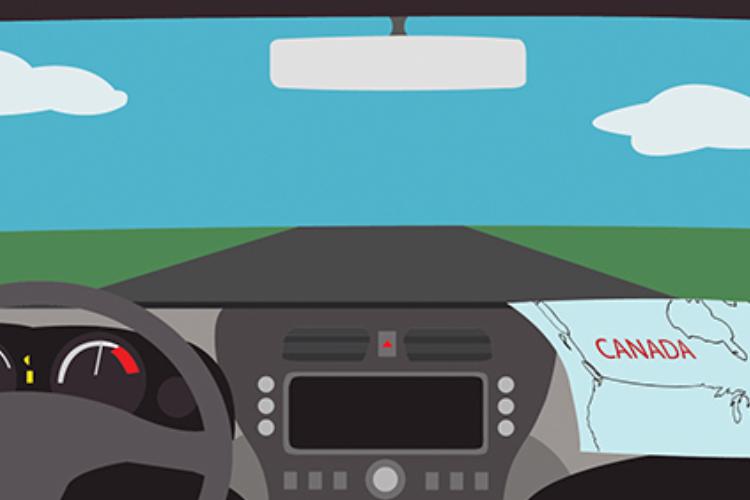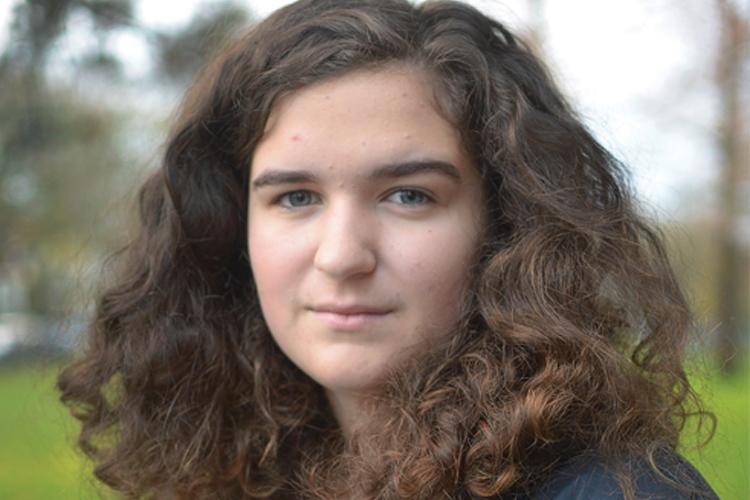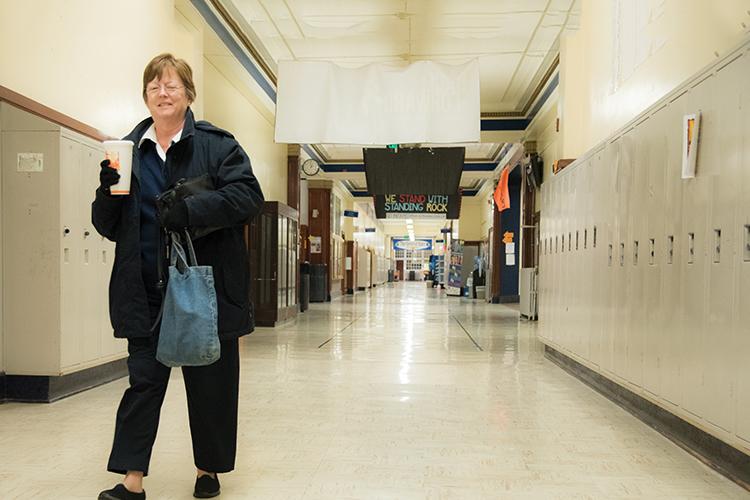
My mom’s plan for the Thanksgiving trip was simple: get everyone out of the house by 8:30 a.m. for the drive to Olympia, Wash. to visit her side of the family. By 9 a.m., my sister was in the shower, my brother was playing video games and my dad had just put rolls in the oven.
Thirty minutes later, we piled into the car and headed north. I drove, and my mom climbed into the front seat. We chatted briefly about her work before she turned on Christmas music and started a game on her phone.
My grandparents were going to be there, and I remember wondering if this would be a good day for Nana. She has Alzheimer’s disease – a degenerative condition that destroys memory and other brain functions. I was focused on the road but couldn’t help thinking how this has hurt my mom.
With every visit, with every encounter, it’s a stark reminder that the person who raised my mom isn’t there anymore.
After everyone arrived, people stood around the kitchen, sampling appetizers and catching up. Nana stood near Papa, a blank look on her face. She smiled but said little. I think it’s easier for her that way because he can do the talking for the both of them. I only saw them separated once, when Papa went to the bathroom. Hands folded, she looked around, waiting for him to return.
“Go talk to her,” my mom urged. I shook my head. It’s awkward talking to Nana. I can’t tell if she recognizes me, and within seconds she forgets the conversation.
As we served the food, Nana appeared hesitant while waiting for Papa to bring her a plate. He guided her to the table, and she went without protest.
Her diagnosis came 10 years ago. The disease wasn’t obvious at first, showing itself in the little things like forgetting where she put her keys or whether she had eaten breakfast. The descent since has been harsh and quick.
It’s devastating for my mom. I’ve seen her try to reconcile with the loss of a mother who is forgetting how to read and hardly recognizes her. It’s easier on me because Nana has had Alzheimer’s for most of my life. I watched as it went from forgetting my name to running out of her home near Seattle and calling the police on Papa, who she thought was a stranger.
Seeing Nana go from such a strong woman to the shell she is now makes me scared for my mom, who seems invincible. That’s what she had thought about Nana. I don’t want to go through that with my mom.
To understand Nana’s present, you have to know her past. She was born Maureen Mooney in Alberta, Canada in 1936. At 24, she moved to the United States to go to nursing school and met my Papa, John Short, while he was studying to be an oral surgeon. They got married and had three children.
Nana was adventurous. When they lived on Staten Island, she was the only mom on their block to take her kids to Manhattan. She also drove them 18 hours every year to Canada to visit her family while Papa stayed home. They moved to five cities during his residency. She remained a dutiful wife but managed to retain her independence.
Once, Nana wanted to go to Vienna and Australia to visit my mom who was traveling at the time. Papa didn’t want to go, so Nana shrugged and went with a friend. I never heard any of those stories from Nana. My mom told them to me.
I remember when she came to Portland to watch us while my parents were vacationing. She took us on the MAX to the Park Blocks downtown, shepherding me and my two siblings there and back with a smile on her face.
Then, the Nana everyone knew began to fade. It happened slowly, and then it hit all at once. Us kids were some of the first family members she forgot. When she didn’t know my name, I didn’t cry. I just felt hollow.
A few years later, she and Papa came down for Christmas. They went out to dinner with my parents and Nana spilled wine on her shirt. By the time the waiter returned with a towel to clean up, she had forgotten what happened.
Later that week, my mom took me and my siblings out to lunch. She mentioned Nana and then started crying. I realized then the weight Nana’s condition had on my mom. The late night phone calls. The sudden trips up north. It’s crushed her, and that’s hard to watch.
It scares me. My mom’s a successful lawyer, and I can never imagine her forgetting who I am. I don’t think anyone thinks that one day their parent will look at them and see a stranger.
Nana and Papa left Thanksgiving early, right after they finished eating. My mom hugged them, and Nana looked anxious. They drove back to the care facility where she stays. There, she can wake up whenever she wants.
There’s a circular hallway that’s locked from the outside. She wanders, wanting to know where she is. By the time she makes it back to her room, she’s forgotten why she came out.
My family isn’t in such a loop. We’re going down a more linear path.
Regardless, Nana isn’t going to come back, and that’s hard for the people closest to her. No one wants to say they’re grieving because no one wants to admit Nana’s gone. ◆







































